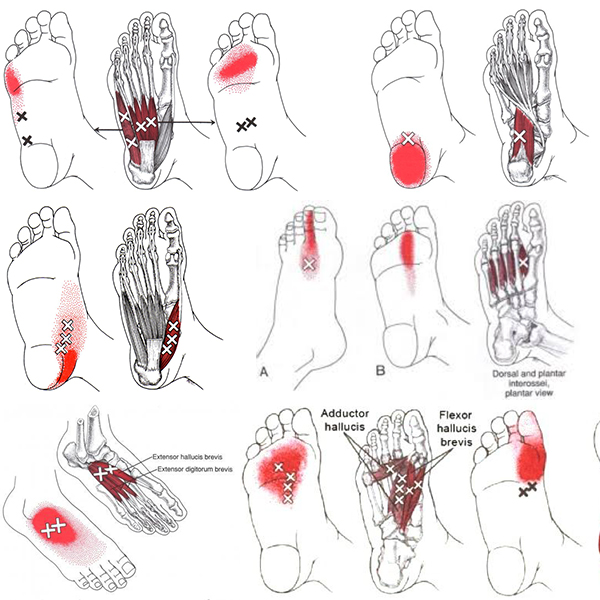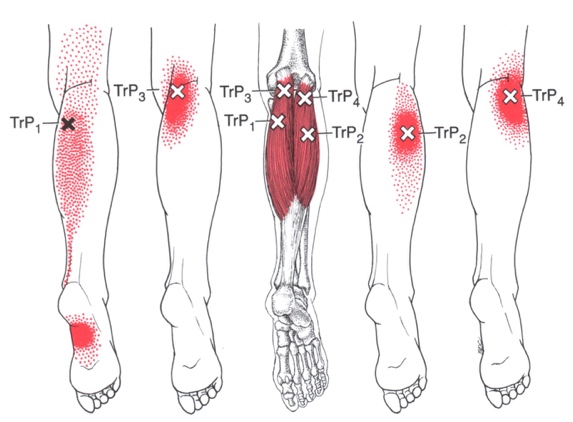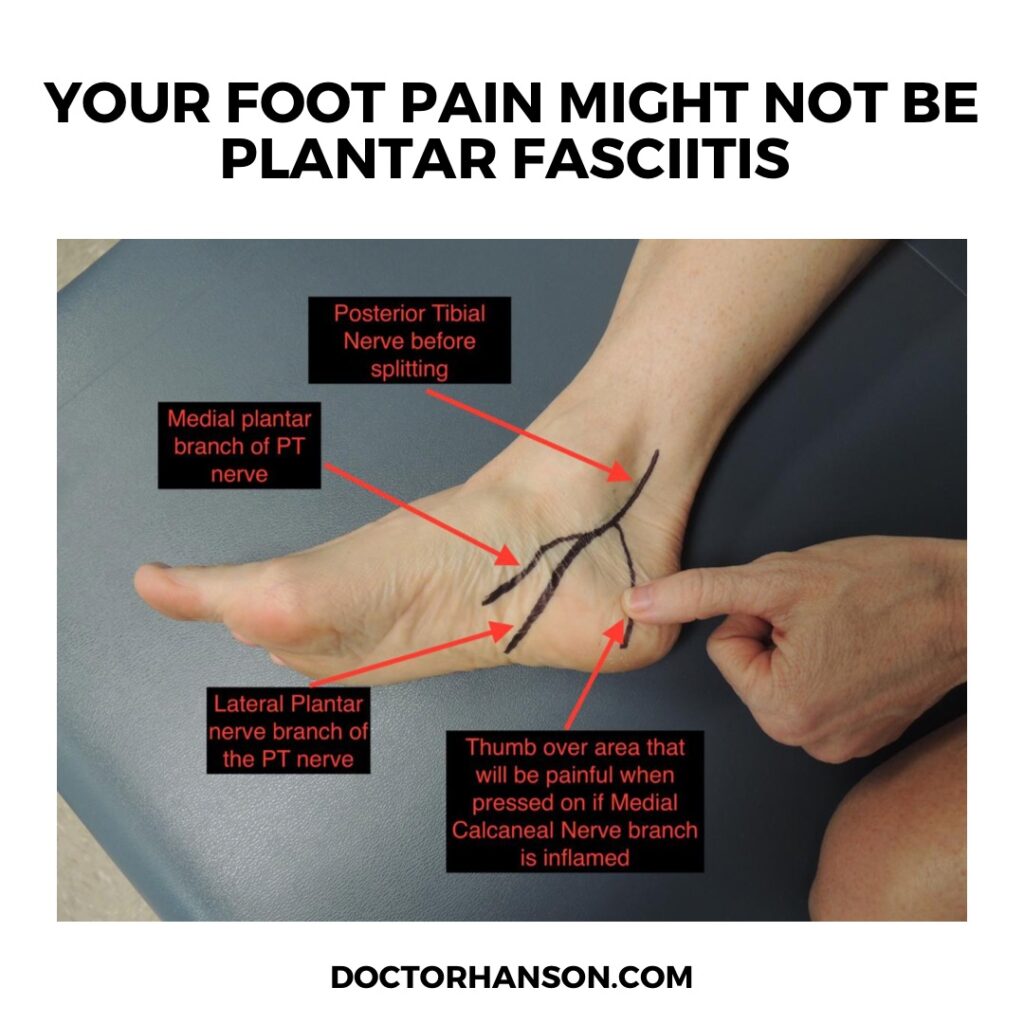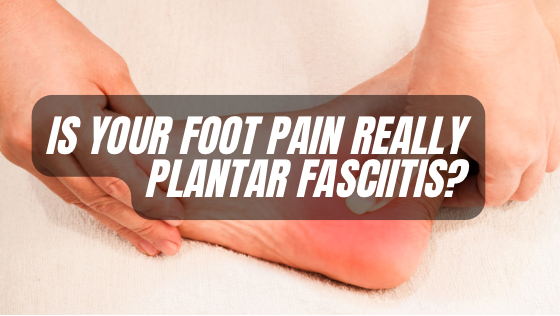You wouldn’t believe how often I see patients with chronic foot pain that’s failed treatment from their podiatrist. It’s the same story everytime. They were told they have plantar fasciitis. They’re bought every pair or orthotic shoes, tried night splints, and had multiple cortisone injections into their plantar fascia. And still their foot is killing them.Just last week I saw 3 new patients with this same story. Let’s dive in to the other causes of foot pain and what you can do for it!
The multiple contributors to foot pain that your doctor is probably overlooking
Feet are complex! There are 29 muscles associated with the foot. 10 of these muscles cross the ankle joint and originate above the foot itself. Then we have to consider there is a complex network of tendons and ligaments that stabilize our ankle joint and the rest of the 26 bones in the foot. On top of that, all of those 29 muscles are controlled by nerves. Now any one of these structures could contribute to your pain experience – and in real life it’s always a combination of them that do.
Your podiatrist has 2 tools – Cortisone injections & Orthotics
Unfortunately most docs overlook and don’t have the time or the tools to provide a thorough examination and then effectively treat all of the contributors to foot pain. So instead they perform a simple cortisone injection and recommend orthotics to brace your foot. These are a generally bad idea.
Cortisone is known to degenerate tendons and ligaments. If you’re lucky you get 3 months of relief from a cortisone injection but nothing actually heals and you end up needing them regularly.
Orthotics make the 29 muscles that stabilize our foot weak. Now you have to wear weird shoes for the rest of your life and nothing ever got fixed.
There’s a better way to treat foot pain. It involves a thorough physical exam and then a treatment that helps your body regenerate and heal itself.
Muscles that can cause foot pain

These are just some of the intrinsic foot muscles that don’t cross your ankle joint that can cause and contribute to your pain experience. I find that a good physical exam can help me to really zone in on the specific muscle that is causing your pain. I like to use a combination of dry needling and electro-acupuncture to release trigger points in these muscles and then change the chemical environment around those irritated muscles.

Other contributors to foot pain can include your calf muscles and the muscles on your shin. Again a good physical exam and a combination of dry needling and electro-acupuncture can effectively treat these problems and help to get rid of your foot pain.
Nerves that can cause foot pain
Nerves make these muscles work – so if there is some irritation along your nerves, you can deal with debilitating pain.I take a neurofunctional approach when it comes to foot pain and will treat your tibial nerve at every concievable site from your calf down to your foot.

How I approach treating foot pain that likely isn’t just plantar fasciitis
I like to use electro-acupuncture and perineural injections for chronic foot pain. I find that this approach is VERY comprehensive and allows we to take care of trigger point referred pain, tight muscles changing range of motion, and irritated nerves. It provides a more comprehensive approach than just a simple cortisone injection, which by the way has been proven to make foot pain worse over time due to the degenerative changes that results from multiple cortisone injections.
So if you’ve had foot pain that just won’t go away, maybe it’s time for a different approach.


